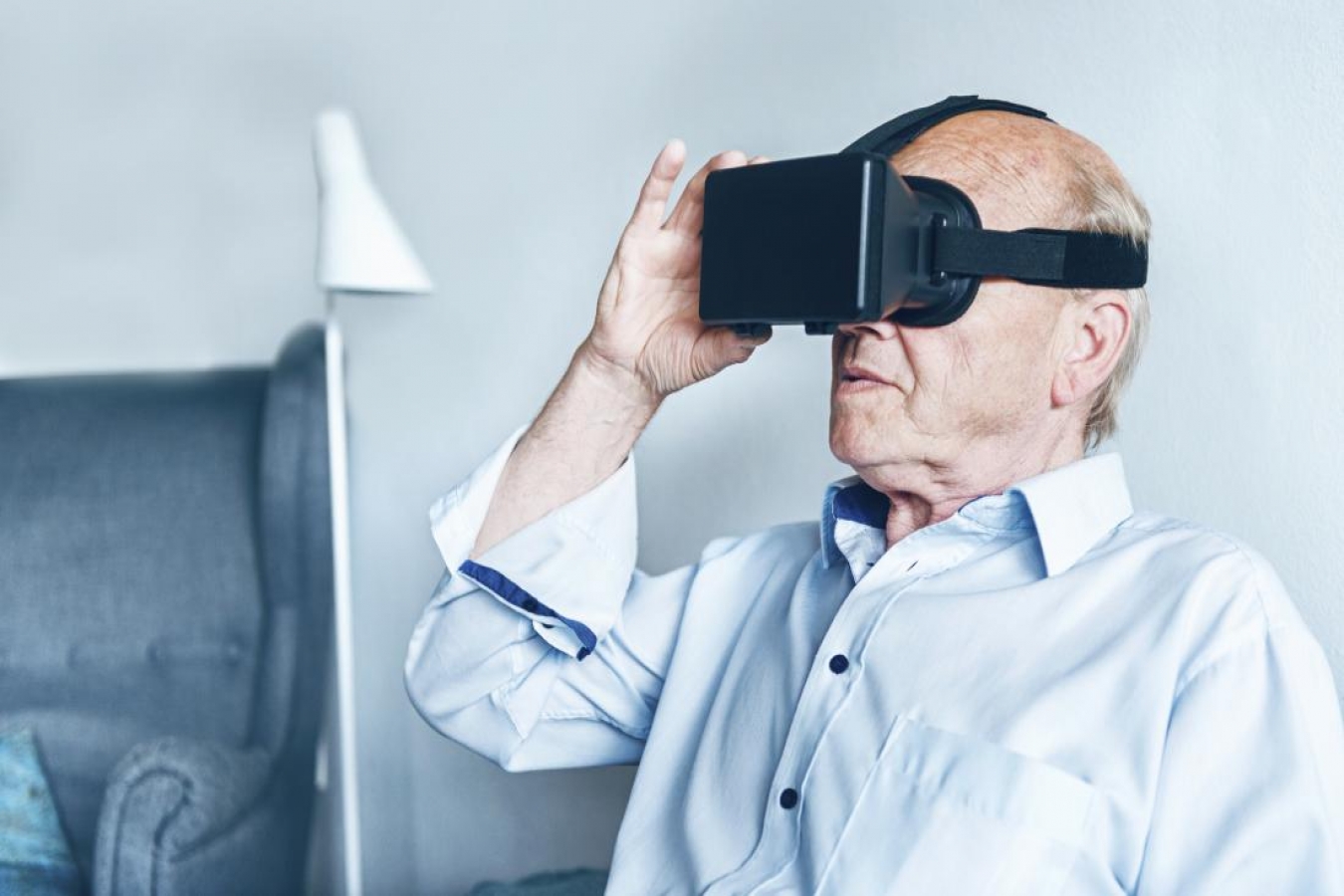


 3:54:7
3:54:7  2019-05-16
2019-05-16  1042
1042

The results of a new study suggest that virtual reality could make life easier for people with dementia. The authors conclude that virtual reality helped the participants recall memories and contributed to an improvement in patients' relationships with caregivers.
Dementia is an umbrella term for a range of conditions, including Huntington's and Alzheimer's diseases.
It can cause memory loss so severe that it negatively impacts a person's ability to perform day-to-day activities.
A person's risk of dementia increases as they get older, and a person can be more prone to developing Alzheimer's based on their ethnicity.
For instance, according to the Centers for Disease Control and Prevention (CDC), African Americans are the group most at risk for Alzheimer's among seniors, followed by Hispanic people, then non-Hispanic white people.
The CDC state that the greatest increase in Alzheimer's disease over the coming decades will occur among Hispanic and African American people and that these increases are largely due to people living longer, as the rates of people dying from chronic diseases are decreasing.
Virtual environments triggered memories
In the current study, the researchers — many from the University of Kent in the United Kingdom — recruited eight people with dementia who were patients at a locked psychiatric hospital. The participants were between 41 and 88 years old.
The team published their findings in the Proceedings of the 2019 CHI Conference on Human Factors in Computing Systems.
Using virtual reality (VR), the participants accessed five different environments over 16 sessions. The virtual environments represented:
The researchers monitored the sessions, and they also collected feedback from the participants and their caregivers.
The authors state that their key finding was that encounters in the virtual environments helped the patients recall old memories.
One patient, for example, remembered a trip that they had taken when they saw a bridge in a virtual environment that reminded them of that holiday.
The authors believe that — because it is difficult to introduce new stimuli that may trigger these kinds of recollections into the patients' secure environments — VR may be a viable aid to help recover memories.
The patients reported that the VR sessions were a positive experience for them and boosted their mood and engagement levels.
Caregivers also reported that the VR experiences deepened and improved their interactions with the participants, as the insights generated from these sessions helped the caregivers understand the participants' lives before they entered into care.
Further studies are required
One major limitation of this study was that it had a small sample size of just eight participants. The researchers explain that this was because of the lengthy processes involved in assessing dementia patients' capacities to consent.
Another limitation of the study was that the researchers were restricted to a single hospital in the U.K., which limits the extent to which the study's findings can be generalized to other populations.
However, the study is the first to introduce the concept of VR as a "personal space" available to patients in long-term care.
The authors suggest that areas of future research could include examining how feasible VR use is among patients with challenging behaviors and investigating VR as brain stimulation for people with dementia who may find task-based assessments difficult.
Although this study used five predetermined virtual environments, the authors say that it could be possible to tailor environments to specific patients. For instance, VR developers could recreate a patient's home or a place that is special to them using 360-degree VR video.
"VR can clearly have positive benefits for patients with dementia, their families and caregivers," comments co-author and senior lecturer Chee Siang Ang, Ph.D. "It provides a richer and more satisfying quality of life than is otherwise available, with many positive outcomes," he continues.
"With further research, it will be possible to further evaluate the elements of virtual environments that benefit patients and use VR even more effectively." Chee Siang Ang, Ph.D.
By David McNamee, Medical News Today
Reality Of Islam |
|

A computer

Auburn Univ

Poisoning i

Water may s
 9:3:43
9:3:43
 2018-11-05
2018-11-05
10 benefits of Marriage in Islam
 7:5:22
7:5:22
 2019-04-08
2019-04-08
benefits of reciting surat yunus, hud &
 9:45:7
9:45:7
 2018-12-24
2018-12-24
advantages & disadvantages of divorce
 11:35:12
11:35:12
 2018-06-10
2018-06-10
 6:0:51
6:0:51
 2018-10-16
2018-10-16
 2:2:13
2:2:13
 2022-10-08
2022-10-08
 6:28:21
6:28:21
 2022-12-20
2022-12-20
 1:34:8
1:34:8
 2022-02-01
2022-02-01
 1:38:41
1:38:41
 2021-12-08
2021-12-08
 2:34:48
2:34:48
 2022-01-18
2022-01-18
 8:3:0
8:3:0
 2018-06-21
2018-06-21
 11:11:59
11:11:59
 2023-02-01
2023-02-01
 5:41:46
5:41:46
 2023-03-18
2023-03-18
| LATEST |